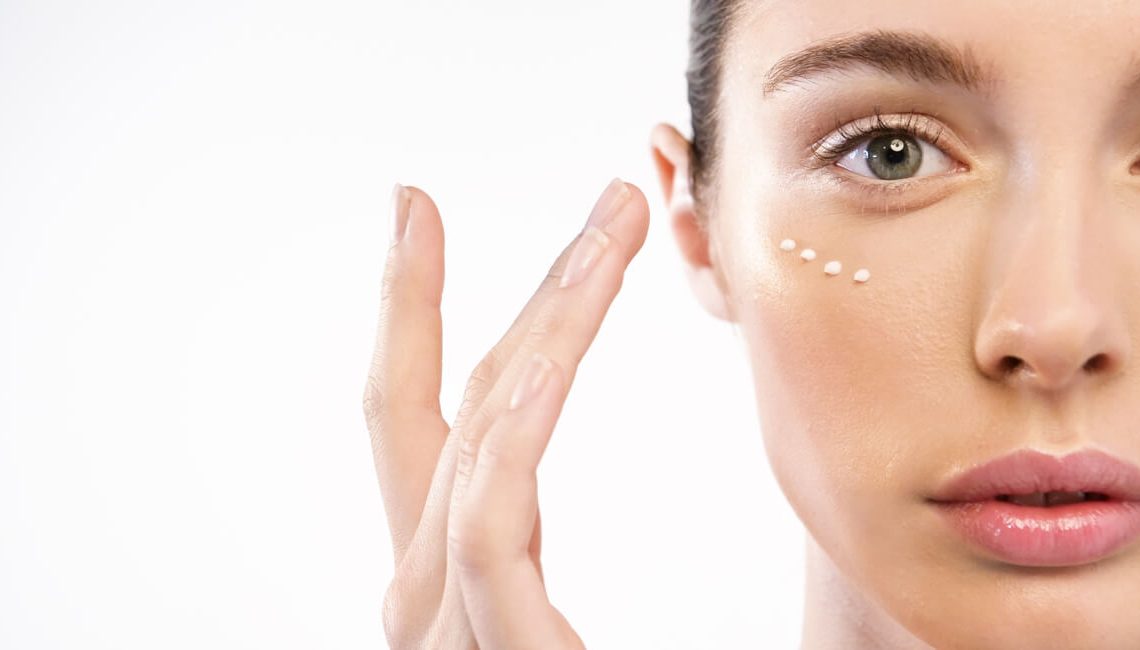
The eye area is perhaps the most sensitive area of the skin. Environmental stress and facial expressions accelerate cutaneous aging of this area, taking the brightness out of your eyes. Here’s how to fight the tide of time.
There is no skin more delicate than the area around the eyes. Here the skin is very thin, the hydrolipidic film is reduced, and the barrier’s functionality is almost non-existent. Furthermore, treating the most common beauty problems of this area is very difficult and often disappointing. The problem is that lack of in-depth knowledge of the problems of this small but important area of skin makes it impossible to deal with situations in a targeted and effective way.
The key word for the preservation of a beautiful gaze is prevention. One should start taking care of one’s eye contour at an early, indeed a very early age. First of all, cleansing: never use aggressive and perfumed detergents. A makeup remover containing moisturizing and soothing plant substances, such as calendula, rice starch, witch hazel, will be useful to prevent irritation and to remove make-up gently, without rubbing. Never ever (ever) go to sleep without removing your make-up: leaving it on for too long or even all night can make the skin sensitive.
After cleansing, the skincare routine can begin. Have you ever wondered why there are specific products for the eye area? Any product containing perfume (which is often the case for common face creams) would be irritating to the eyes, causing tingling and discomfort to eyelids and conjunctival. The same goes for sunscreens. But if you use sufficiently fluid and delicate non-perfumed facial products (for example a serum or a lotion), maybe with physical and non-chemical solar filters, these are perfectly suitable for the eye contour and it’ll therefore be possible to use a single product for your whole face.
If you suffer from skin dryness in the area, you’ll want to use a more moisturizing formula containing ceramides. Wearing sunglasses, besides protecting your eyesight, also lends a hand in preserving the skin around the eyes, especially preventing so-called “crow’s feet”, a.k.a. the wrinkles on the outer corner of the eyes, due to excessive squinting.
There are also lifestyle choices you can make to prevent premature aging around the eyes. For example, your head should always be somewhat raised when you sleep so as to avoid fluid retention in the eyelids. When you wake up, a gentle circular massage with your fingertips will help prevent swelling. Alcohol consumption and a salt-rich diet can be detrimental to eyelid swelling. Drinking plenty of water and eating simple, natural foods rich in antioxidants (such as fruit, vegetables, salmon) will also make quite a difference.
Contact lens wearers should pay the utmost attention to choosing the most suitable and comfortable lens type, and to follow recommendations for cleaning, time of use and disposal. If you are predisposed to allergies, it’s important to know eyelids are more prone to dermatitis. For example, you could have a reaction to volatile fragrances (even environmental or house deodorants) or by simply rubbing your eyes after touching something.
Allergy to nail varnish can also only manifest on the eyelids, due to rubbing your eyes with your fingers. In other increasingly frequent cases, so-called dry eye syndrome can cause dermatitis of the eye contour: this requires a medical eye examination is necessary, with the prescription of artificial tears and/or eye drops and ophthalmic ointments.
The advice is to always pay the utmost attention to your eyes: starting good cosmetic habits from an early age to protect and respect the eyes will prevent many pathologies and imperfections later on in life.
Article of Dr Adele Sparavigna for https://4me.styl


